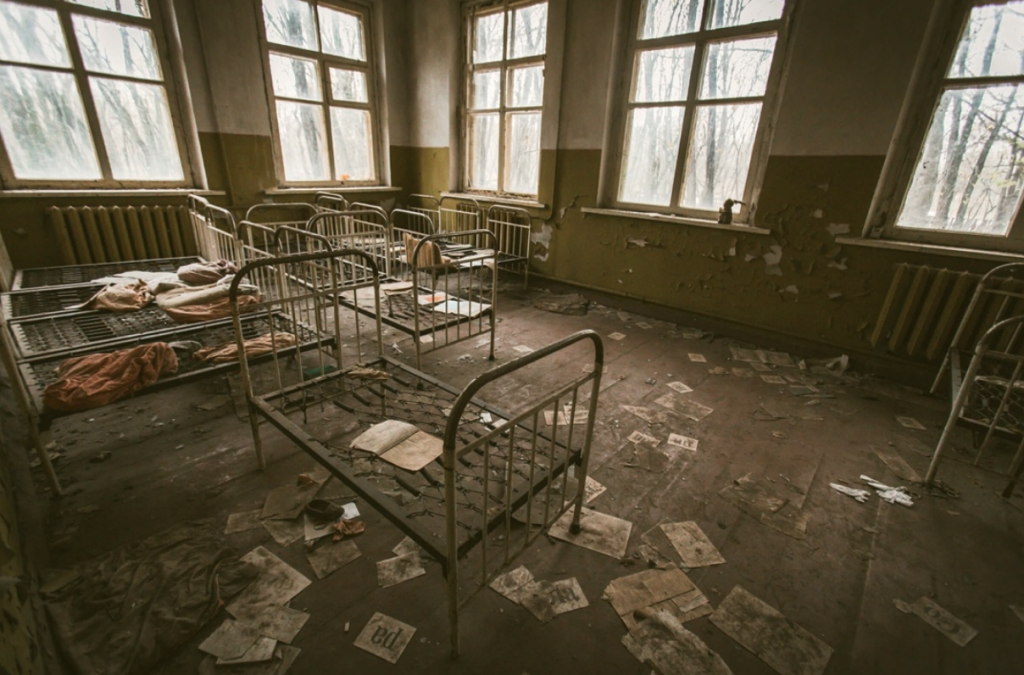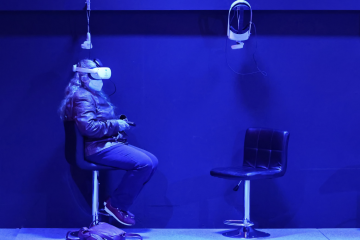
Ai, Hoshino. “Photo by Hoshino Ai on Unsplash.” Beautiful Free Images & Pictures. Unsplash, January 28, 2016. https://unsplash.com/photos/sybO0dQ8hTw.
Across Nigeria, reports of mental health patients being mistreated in “treatment centres” – presumed medical centres dedicated to treating mental health patients – led human rights group Human Rights Watch (HRW) to visit and investigate these centres. They found that patients were being chained, denied meals and a sanitary environment, and in some cases even harmed physically as part of their treatment procedure[i]. Interviews revealed that these human rights violations occurred as a result of misinformation and traditional mindsets stigmatising those who suffered from mental health conditions. In some cases, perpetrators of patient mistreatment simply could not comprehend their fault, whereas in others, they seemed to realise the moral implications of their acts and went to great lengths in order to hide them[ii]. After a comprehensive review of their findings, HRW suggests solutions which aim to tackle both the lack of information surrounding mental health in many parts of the world. Along with this, their suggestions aim to create a new and progressive mindset which could hopefully alleviate the stigma against those suffering from mental health conditions[iii]. This would be a single but significant step in creating a global atmosphere of awareness, and to avoid any of the acts described further in this article from repeating themselves.
Following the end of their investigation by September 2019, HRW had investigated 28 Nigerian “treatment centres” across the country, and were left utterly speechless at the appalling discoveries.[iv]
“When I first arrived here, I was tied with chains for three days straight so I could fast. For the three days I had no food or water. It wasn’t my choice, but the pastor said it was good for me.”These were the words of Akanni, a 22-year-old woman who was detained in a church in Abeokuta, south-western Nigeria.[v]Particularly in Abeokuta, many cases like this were discovered during the 11 months[vi]HRW investigated these centres. A 30-year-old woman was discovered chained to a car engine along with two other men in a shed on the property of a traditional healer in Abeokuta. When asked about what she had to endure during the time she was detained, she said: “I go to toilet in this place [where I am shackled] in plastic bags until they take it away at night.”[vii]In some cases, despite having properly functioning sanitary facilities, patients were denied access by the staff. Instead, they were chained and given buckets to use.[viii]
This violent mistreatment was not isolated to relatively remote parts of the country. Three other facilities in Abuja, the capital of Nigeria, were investigated, and it was discovered that patients, against their will, were forbidden from bathing on a regular basis. When asked about this issue, a traditional healer said: “When people are locked up … they don’t bathe sometimes for months until they feel better…. We just pour water with herbs on them without going very close to them.”[ix]
In Kaduna, North-Western Nigeria, investigations shed light on the horrific case of Amina, a woman who had suffered breakdowns after the death of her mother. She was beaten, spat on, tied with ropes, and molested by a traditional healer.“He told me to undress, that it is the part of the healing process, and then he started touching my body,” Amina said. “Explain to me, how is that part of a healing process?”[x]
In Ibadan, the country’s largest city, a pastor described using chains to force people into consuming herbs. Investigators and researchers were shocked to see a group of women pinning a 12-year-old girl to the ground while one made incisions on her back and pressed herbs into the wounds. This act was justified by the healer, who felt that there was nothing wrong with the process. According to the healer, this was simply allowing the “evil blood” to seep out of the child after she had stolen from her mother.[xi]
On the 17thof June and 12thof September 2019, HRW sent detailed letters outlining the findings and cases of abuse prevalent in the treatment centres to two separate federal ministries of the government: the Federal Ministry of Health and the Federal Ministry of Women’s Affairs and Social Development. As of this moment, they have been met with no response. Surprised at the lack of official response or visible action to actively implement change in these treatment centres, HRW sent another letter, bringing the government’s attention to the human rights violations taking place in the treatment centres. This was done as recently as the 24thof October, 2019. Like the previous letters, no response has yet been received.[xii]
It appears that those involved in the chaining and other human rights violations of mental health patients are cognizant of the fact that what they are doing is unacceptable. Staff at a treatment facility in Northern Nigeria repeatedly insisted they were not involved in such acts. However, upon further investigation of the facility, a ward was discovered where patients had iron shackles around their ankles.[xiii]Worryingly, those trying to cover up their actions can also be identified in major cities such as Lagos and Kaduna. Investigators were denied access to federal psychiatric institutions in these places.[xiv]
According to HRW, the solution lies in a carefully concocted mixture of legislation and information. They suggest legally banning the chaining of patients, and investigating treatment centres across all 36 states with the aim of training every healer and staff member involved. Along with this, open information campaigns and workshops would, according to HRW, sensitize the Nigerian public to these issues[xv]and to human rights more broadly.
Edited by Mira Cantor
References
[i] “Nigeria: People With Mental Health Conditions Chained, Abused.” Human Rights Watch. Human Rights Watch, November 11, 2019. https://www.hrw.org/news/2019/11/11/nigeria-people-mental-health-conditions-chained-abused.
[ii] Stewart, Catrina. “Chained, Flogged and Starved: Report Reveals ‘Unimaginable’ Treatment of Nigeria’s Mentally Ill.” The Telegraph. Telegraph Media Group, November 11, 2019. https://www.telegraph.co.uk/global-health/climate-and-people/chained-flogged-starved-report-reveals-unimaginable-treatment/.
[iii] “Nigeria: People With Mental Health Conditions Chained, Abused.” Human Rights Watch. Human Rights Watch, November 11, 2019. https://www.hrw.org/news/2019/11/11/nigeria-people-mental-health-conditions-chained-abused.
[iv] Ibid.
[v] Ibid.
[vi] Ibid.
[vii] Ibid.
[viii] Al Jazeera. “Nigeria Urged to Ban Chaining People with Mental Health Issues.” News | Al Jazeera. Al Jazeera, November 11, 2019. https://www.aljazeera.com/news/2019/11/nigeria-urged-ban-chaining-people-mental-health-issues-191110093604959.html.
[ix] Ibid.
[x] “Nigeria: People With Mental Health Conditions Chained, Abused.” Human Rights Watch. Human Rights Watch, November 11, 2019. https://www.hrw.org/news/2019/11/11/nigeria-people-mental-health-conditions-chained-abused.
[xi] Ibid.
[xii] Ibid.
[xiii] Ibid.
[xiv] Stewart, Catrina. “Chained, Flogged and Starved: Report Reveals ‘Unimaginable’ Treatment of Nigeria’s Mentally Ill.” The Telegraph. Telegraph Media Group, November 11, 2019. https://www.telegraph.co.uk/global-health/climate-and-people/chained-flogged-starved-report-reveals-unimaginable-treatment/.
[xv] “Nigeria: People With Mental Health Conditions Chained, Abused.” Human Rights Watch. Human Rights Watch, November 11, 2019. https://www.hrw.org/news/2019/11/11/nigeria-people-mental-health-conditions-chained-abused.




